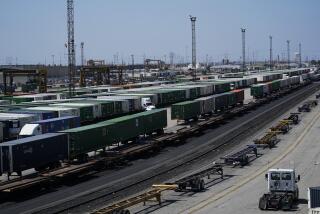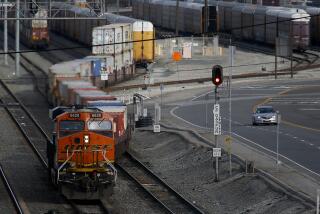Plan to Tighten Junk-Car Program Faces Showdown
A proposal to tighten the South Coast Air Quality Management District’s controversial auto scrapping program--a plan opposed by the collector-car industry and some environmental groups--is set for a potentially heated hearing Friday at the district’s headquarters in Diamond Bar.
Automobile enthusiasts, backed by the powerful Specialty Equipment Market Assn. (SEMA), oppose the plan because it encourages destruction of older cars, a valuable source of replacement parts.
Environmental groups criticize the program because it allows industry to continue fouling the air--often in the poorest neighborhoods in the Los Angeles Basin--by exchanging junk cars for credits permitting businesses to postpone installation of pollution-control equipment.
The program, which has operated for more than five years, enables private scrap-yard operators to collect air-pollution credits in exchange for the estimated clean-air benefits realized from taking heavily polluting older cars off the road.
The operators--at present there is only one, Market Based Solutions Inc. in Glendale--can then sell those credits to businesses that use them to postpone the installation of pollution-control equipment or the institution of employee carpool and vanpool programs.
The changes to be considered Friday were proposed after an AQMD inspector criticized the program for not ensuring that the cars being scrapped were actually operating vehicles that were causing pollution. Under the new rules, cars to be scrapped would have to be inspected and certified to be in legal condition to operate on city streets.
SEMA and other auto-enthusiast groups say the amendments do nothing to address the issue of cleaning the air--that they only make it more certain that the cars scrapped under the program are vehicles that otherwise might be used for parts.
“We feel this is just an effort to diffuse the controversy” over the validity of the program, said association spokesman Sam Jackson.
His group favors a program, like one being tested in Arizona, in which the money now being paid to people who scrap their cars is used instead for repairs that would prolong the usefulness of their vehicles and reduce emissions.






